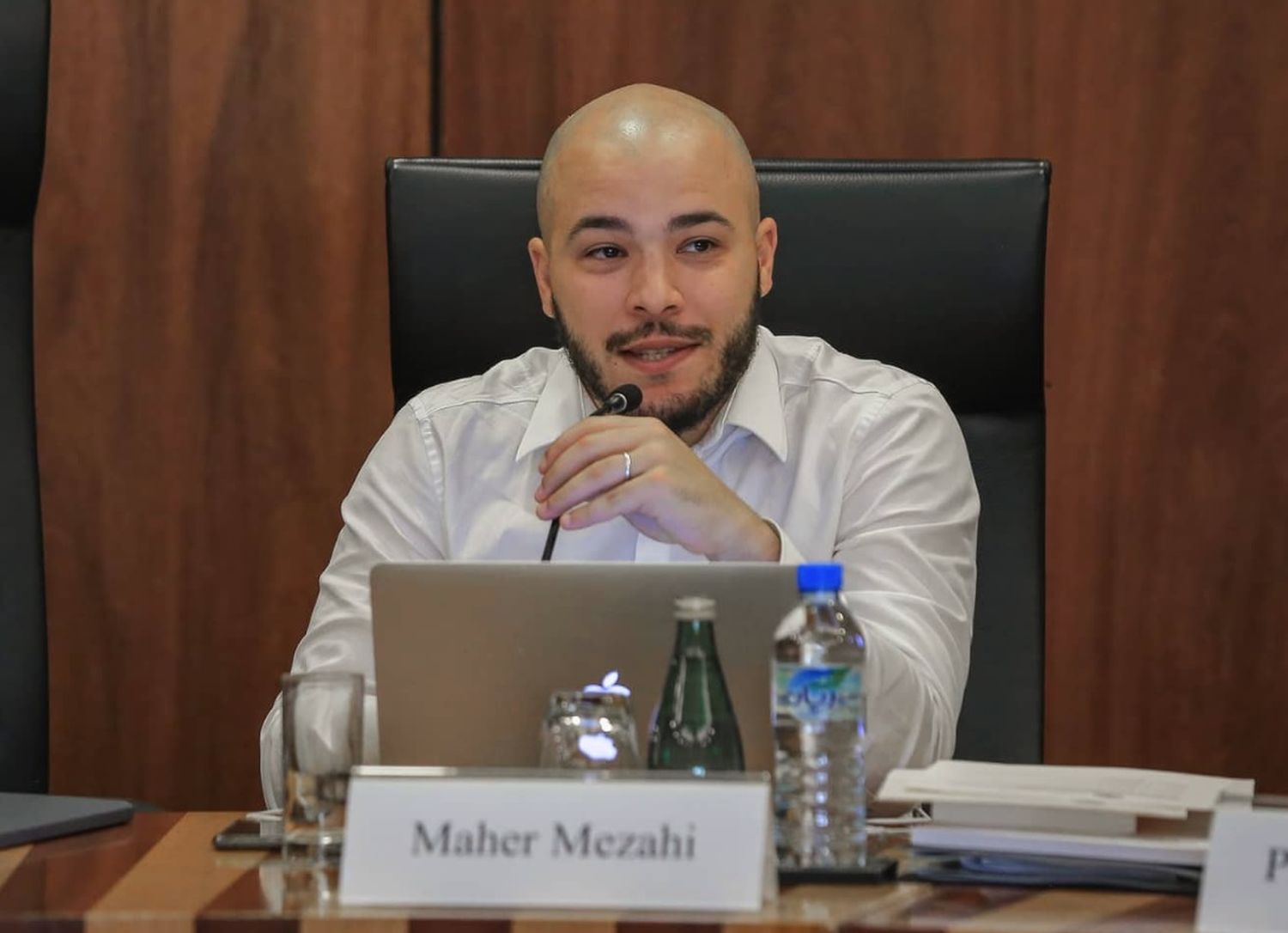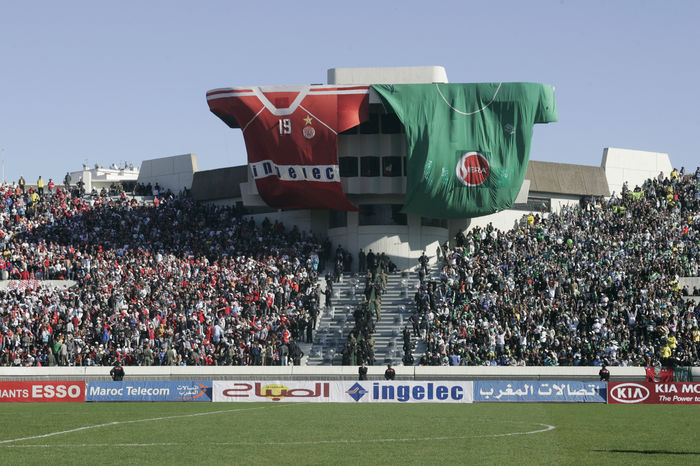I meet Maher Mezahi on Zoom. The Canadian-Algerian football journalist, who specialises in North African football, is dialling in from his adopted home, Algiers. He’s recently back from covering the African Cup of Nations (AFCON) for The Athletic, a major career breakthrough for him, but he still plys his trade largely in freelance journalism.
I begin by asking about his route into journalism, once a philosophy major in Canada, now a football expert in Algeria, his career path has been fascinating. “I started by joining football forums,” says Mezahi, “and it was mainly to talk about football but also to learn about football editing. I started to write longer and longer posts, and that’s when Twitter started to take off, around 2010, 2011. I’d go on there mostly for transfer rumours at the beginning.
“I can confidently say that, without Twitter, I wouldn’t be a journalist today, because I had no idea how to get my foot in the door. So, seeing what was happening on Twitter was cool. I saw what other journalists were posting on Twitter and I was posting similar things about Algerian football, just trying to grow a following, not knowing where it would take me.”
A few years later, Mezahi was scouted for what proved to be his first big opportunity in the industry: “In 2013, somebody reached out to me from The Telegraph saying that they had a project called World Cup Nation, where they wanted 32 writers from the 32 different teams in the World Cup. They’re saying: ‘you know much more about the Algerian national team than anybody else in the UK, we’ve read your articles and your blogs, we think that you can do a good job, are you up for it?’ I’m like, ‘Yeah, let’s do it. Why not?’
“I would say that I’ve evolved into more of an African football connoisseur”
“So, as soon as I started writing for them, ESPN FC did something similar. A month later, Al Jazeera America. So, within like the span of three, four months, I just went from being somebody that posts random stuff on Twitter to somebody that’s writing for some of the biggest media outlets in the world, I couldn’t believe it.”
Mezahi’s “big, big break” came at World Cup 2014, where he again covered Algeria as they made the competition’s last 16. Does he feel his success is tied into the success of North African, or more specifically Algerian, football? “100%. If Riyad Mahrez didn’t have the season that he had in 2015-16, winning the PFA Player of the Year and really taking the Premier League by storm, I don’t think I could have paid my bills that year.
“Everybody wanted to talk about him, the BBC even paid for me to go to his village and shoot something because he was BBC African Footballer of the Year. I remember feeling a little bit nervous in 2018 because Algeria hadn’t qualified for the World Cup. But, Morocco and Tunisia had. Actually, work did decrease a bit for me. That’s when I started to diversify a bit. I started covering all kinds of different teams in North Africa. And I think probably one of the better decisions I made in my life was to not just stick to Algerian football journalism because there are a lot of good journalists here in Morocco and Tunisia too. But there are not a lot that cover it in English from here on the ground.”
Mezahi shies away from being labelled an African football ‘expert’ now though, even after his recent stint with The Athletic at AFCON: “I don’t like the term at all because I can’t even consider myself an Algerian expert, as there are people here that can tell you starting lineups of second division teams in 1973. I can’t do that. I understand, I might know more than the average British football fan. But, to be an expert, for me, you have to know all different kinds of things. And to do that, for one country, is really difficult. To do that for five or six in North Africa is practically impossible. I would say that I’ve evolved into more of an African football connoisseur.”
“The government isn’t even willing to raise prices on tickets because they’re scared it’ll roll into some political protest. They’re really scared of football supporters here”
After a brief chat about Mezahi’s videography - he has made short documentaries for FIFA TV as well as COPA90 after graduating from being a fixer in his early days in Algeria - we discuss North African football itself. Football fan culture in Africa is famed for having a strong politicised arm. Political dissent that cannot be expressed through normal channels is often expressed in the stands, leading many to romanticise fan culture across the Maghreb. However, does fan culture in North Africa have a darker undercurrent to it? “Yeah, 100%,” explains Mezahi, “The things that aren’t commissioned [by editors] that I hear in the stadiums all the time are things like homophobic chants. It’s not necessarily because they have something against gay people, but they use a gay slur against the player. A lot of violence. The violence is almost built into the football scene here now and it’s almost accepted.
“The time it really hit me was at the death of a Cameroonian striker in the Algerian League, Albert Ebosse in 2014. He got hit by a rock. They’re throwing rocks at everybody. Until the football infrastructure changes, I don’t think we’re going to get a lot of change in terms of violence in the stadiums. We don’t have cameras in the stadiums, we don’t have seats in the stadiums. You know, they’re all old. The government isn’t even willing to raise prices on tickets because they’re scared it’ll roll into some political protest. They’re really scared of football supporters here.”
On the other hand, Mezahi recognises that there are overwhelming positives to African fan culture: “They really espouse and embody working class values, populist values. So, it gives you a real lens into what working class society is like if you don’t live amongst them. And the passion, the choreography is really, really striking. It’s really impressive. The musicality for me is something that makes them unique. I’ve never seen any set of supporters anywhere in the world that can sing like North African supporters.”
Moving on, I address the intriguing elephant in the room: AFCON. AFCON 2021 had it all: from a referee blowing his whistle five minutes before full-time to huge shocks and screamers, to a whole round of fixtures where just one match had more than a single goal. So, was AFCON a good advert for African football? “If you’re doing an assessment on the infrastructure and the ability of African nations to host major tournaments, then definitely not. The stadium tragedy was the main problem, but everything else is part and parcel of the tournament, that’s what makes it so fun.
“If you’re looking for real human stories, real humanity, unsanitised football, wild things to happen, then AFCON could be for you. Heartwarming stories, that’s AFCON’s history”
“It’s not a sanitised, micro-managed tournament that you get in other parts of the world. These are real human stories, you have nations where players work second jobs; air control tower managers, customs police officers, people playing in the fourth divisions of some European leagues, or a goalie from Sierra Leone playing for a club called the East End Lions, which I’ve never heard of, saving Frank Kessie’s penalty. All the rest of it, we can deal with, we’re improving. It’s so fun and that in itself is the best advert for AFCON.”
Although AFCON football may not thrive in its tactical endeavours, Mezahi claims that the beauty of it all comes from the stories: “It depends what you mean by ‘an advert’. If you’re looking to see the best technical football, the best tactical football, great refereeing, AFCON isn’t for you. Go watch the European Champions League or the English Premier League instead. It’s really good stuff. It’s a great product [for football]. But, if you’re looking for real human stories, real humanity, unsanitised football, wild things to happen, then AFCON could be for you. Heartwarming stories, that’s AFCON’s history.”
Briefly returning to the Olembe Stadium tragedy, a horrific stampede before Cameroon’s game against Comoros that killed eight people, I tell Mezahi that, if the disaster had happened in Europe, the tournament would likely have been cancelled or, at the very least, football would not have been played the next day. He responds by telling me that I’m the second person, after a producer at the BBC, to tell him this. Should we even be talking about AFCON’s football in the tragedy’s aftermath? “Most people there were kind of disappointed and sad that we played football the very next day, and I think that was a mistake from CAF [Confederation of African Football].
“CAF’s President was completely out of touch with reality. You know, ‘we’ve consulted with stakeholders’, what about the humanity of these people? The supporters, have you consulted with them? The next day [after the tragedy], we had dinner with some UK journalists and there was a Cameroonian driver next to me, who was saying: ‘we don’t look at life the same way in Africa as in Europe’, basically saying shit like this does happen, and you have to kind of get used to it. Life can’t just stop. Death is much more banalised. Overall, Cameroonians weren’t disappointed we finished the tournament, but playing the next day was a massive mistake. It was disrespectful.”
Before the tournament started, there was a degree of hostility from European clubs and media towards players choosing to represent their countries over staying for club football, leading to Ian Wright labelling treatment of players as outright racism. Does Mezahi think there is a stigma around African football in Europe? “Definitely. Even amongst some of the players like dual nationals, who think: ‘I’m going to go there and play on poor pitches that increase my chances of getting injured, while over here I’m making £150,000’. The clubs see the same thing: ‘we have no idea if the medical staff is competent, or if there’s even a chance of catching illnesses like malaria’.
“The clubs are going to exert pressure on the player and see if it convinces them to stay. It works on some players who aren’t superstars back home, but it’s never going to work for Sadio Mané or Mohamed Salah because for them winning a trophy with their countries means more than winning the Premier League or the Champions League with Liverpool. Clubs pick on players like [Watford’s] Emmanuel Dennis, but can never pick on the superstars.”
In light of this, however, Mezahi reckons now is the best time for footballing talent emerging from Africa in history. The same goes for managing. He even reckons the talent coming out of the continent is better than that from South America. We disagree on that, but African football is clearly on the up. There is so much to African football, domestic and international, and if Mezahi’s words are anything to go by, it’s worth keeping a close eye on.


